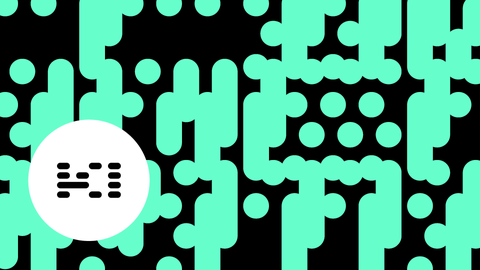Mar 22, 2021
Call for Abstracts:Artificial Intelligence as a Concept in the Humanities and Social Sciences// December 1-3, 2021// Interdisciplinary Conference at TU Dresden, Germany
Current debates on artificial intelligence (AI) in the humanities and social sciences seem to be concerned primarily with the effects of the application of AI technologies within a variety of social scenarios. One way in which these effects have been discussed considers the mechanisms of reproduction as well as reinforcement of existing social inequalities and forms of discrimination (see e.g., Apprich et al. 2018). At the same time, there are a number of studies which address polarizing political tendencies in public spaces (Ingold 2017, Vesting 2019), or questions pertaining to restrictions of individual agency as related to the implementation of AI processes in various areas of social life (König 2019, Block/Dickel 2020). Current discussions of these transformative processes also emphasize different social, cultural, and political aspects of the dissemination of AI technologies such as the technological formalization of knowledge, the processing of contingent future scenarios into predictions, or the distribution of technological infrastructures between states and organizations. Related questions of hegemonic cultural structures (Galloway 2013) and geopolitical implications (Bratton 2015) in turn arise from these considerations. Notably there have also been fruitful attempts to make sense of the statistical and mathematical foundations of AI in their social implications (Mackenzie 2017, Heintz 1993), or to trace their institutional embeddedness as well as their distributed infrastructural complexity (Crawford/Joler 2018).
In contrast to the aforementioned approaches, the first conference of the Schaufler Kolleg@TU Dresden aims to center its discussions around adequate concepts of AI in the humanities and social sciences. Current theoretical approaches assume, for instance, that the adaptive algorithmic processing of information is based on the extraction of knowledge in the form of data (Joler/Pasquinelli 2020) which generates “patterns” (Nassehi 2019). These patterns bear traces of their social origins and need to be interpreted in order to generate meaning. Our conference will analytically explore the theoretical implications of these mechanisms as well as those of other, possibly less considered mechanisms. Which concepts are particularly well suited for a better understanding of AI, especially with regard to its complex embeddedness in social and cultural realities? How can we work on a common language toward a shared understanding of AI? Which bodies of knowledge can be adopted as a source of inspiration and which concepts are better discarded altogether?
Proposals for contributions should focus, in a broad sense, on conceptual work concerning AI as well as its relationship to other concepts that are paradigmatic to related discussions. Proposals should reflect in some way on one or some combination of the following thematic complexes:
- intelligence, reasoning, computation, learning, judgment, and decision-making
- materiality, situatedness, and (social) identity
- communication, technology, infrastructure, information, and knowledge
- autonomy, control, ecology, and agency
- inequality, discrimination, hegemony, and violence
Our approach is based on the assumption that an interdisciplinary approach to concepts of AI can better contribute to a critical understanding of AI as a real-world phenomenon and that such an exchange between diverse fields of study would be helpful both for expanding perspectives in empirical scenarios and specifying analytical approaches to AI in the humanities and social sciences. We assume that negotiating the advantages as well as disadvantages of different approaches, including in dialogue with the natural sciences and engineering, can open up new and productive approaches to studying AI. Therefore, we are particularly eager to receive proposals that seek to build bridges across alleged epistemic gaps and welcome concepts that enable connections between previously disparate discussions of AI.
We invite abstracts (300-500 words) to be submitted to by 30 April 2021. The organizers (Richard Groß & Ann-Kathrin Koster) can be reached at the same address for questions concerning the conference and suitable formats.
The conference will be held online, as a hybrid event or in-person, depending on the COVID-19 pandemic situation. All participants will be informed in advance of the conference as soon as a decision has been made.
References
Clemens Apprich, Wendy Hui Kyong Chun, Florian Cramer & Hito Steyerl, Pattern Discrimination. Lüneburg/Minneapolis, MN: meson press/Minnesota University Press 2018.
Katharina Block & Sascha Dickel, Jenseits der Autonomie. Die De/Problematisierung des Subjekts in Zeiten der Digitalisierung. In: BEHEMOTH. A Journal on Civilisation 13 (2020), H. 1, S. 109-131.
Benjamin H. Bratton, The Stack. On Software and Sovereignty. Cambridge, MA: MIT Press 2015.
Kate Crawford & Vladan Joler, Anatomy of an AI System: The Amazon Echo As An Anatomical Map of Human Labor, Data and Planetary Resources. AI Now Institute and Share Lab, https://anatomyof.ai, 2018.
Alexander R. Galloway, The Cybernetic Hypothesis. In: differences: A Journal of Feminist Cultural Studies 25 (2013), H. 1, S. 108-131.
Bettina Heintz, Herrschaft der Regel. Zur Grundlagengeschichte des Computers. Frankfurt a.M./New York, NY: Campus 1993.
Albert Ingold, Digitalisierung demokratischer Öffentlichkeiten. In: Der Staat 56 (2017), H. 4, S. 491-533.
Pascal D. König, Die digitale Versuchung. Wie digitale Technologien die politischen Fundamente freiheitlicher Gesellschaften herausfordern. In: Politische Vierteljahresschrift 60 (2019), H. 3, S. 441-459.
Adrian Mackenzie, Machine Learners. Archaelogy of a Data Practice. Cambridge, MA/London: MIT Press 2017.
Armin Nassehi, Muster. Theorie der digitalen Gesellschaft. München: Beck 2019.
Matteo Pasquinelli & Vladan Joler, The Nooscope Manifested: AI as Instrument of Knowledge Extractivism. In: AI & Society (2020).
Thomas Vesting, Die Veränderung der Öffentlichkeit durch künstliche Intelligenz. In: Sebastian Unger & Antje von Ungern-Sternberg (Hrsg.), Demokratie und künstliche Intelligenz. Tübingen: Mohr Siebeck 2019, S. 33-50.

